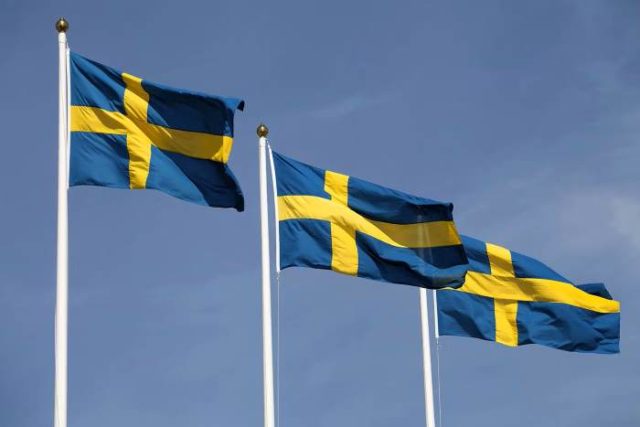
In an interview with the Swedish YouTube channel Riks, Henrik Vinge, chairman of the Justice Committee in the Swedish Riksdag, says that the committee will have to work overtime to get all the legislation that will now become a reality before the summer of 2026.
In the 2022 parliamentary election, four right-wing parties received a mandate from the Swedish people to stop refugee immigration and to combat the very violent gang crime. Several proposals for tougher penalties and more effective tools for the police have been considered during the mandate period. But since the legislative process in the Swedish Riksdag takes a long time, it is now during the last year before the next election that most of the new laws will be hammered through.
The government and the coalition party Sweden Democrats are in a hurry to get everything through. They want to avoid going to the election in September 2026 without the reforms promised to the Swedish people having become a reality. It will not be enough to blame the legislative process; slow investigations or the committee work in parliament. The government knows that it takes time to get new laws in place, and people expect it to act professionally and purposefully based on that.
So what are the measures that Sweden’s right-wing government has wanted to implement? Many would probably say that it is a real conservative restoration that Sweden’s new government has offered.
This includes, among other things, expanded opportunities to use preventive coercive measures such as wiretapping without direct suspicion of a crime. It involves significantly expanded opportunities to deport criminals who are not Swedish citizens. This has previously only happened in the case of serious crime, but now minor offenses will be enough for deportation to be decided. Gang criminals will be able to receive double punishment for the crimes they are convicted of. This can be seen as a deviation from the principle that all people are equal before the law, but politicians believe that organized crime threatens Swedish society to such an extent that it is justified to combat criminal gangs with extra harsh tools.
Furthermore, a system of anonymous witnesses will be introduced. This has not existed before in Sweden. But with the new organized crime, it has become a problem to get people to dare to testify because they are simply afraid of reprisals, and they have good reason to be.
Sweden has previously had far-reaching secrecy legislation where different authorities have been prevented from sharing information with each other. Now all information that in any way contributes to preventing crime will be able to be shared between, for example, social and law enforcement authorities. Sentence reductions for young people under 18 will be reduced or removed. The age of criminal responsibility will be lowered from 15 to 14 years. The penalty scales for violent and sexual crimes will be reviewed. Quantity discounts in terms of prison sentences will be eliminated and repeat offenders will be able to be locked up for as long as necessary to prevent them from committing new crimes.
These are reforms that run counter to the “liberal” or “humanitarian” view of crime and punishment that has previously dominated Sweden. There are also reforms that do not arouse any protests among ordinary people. There are different opinions about the new migration policy or the new energy policy. But no one seems to want to defend criminals’ right to humane, that is, low, punishments today. The general legal consciousness demands that criminals be punished and that crime victims thereby receive redress. The major opposition party, the Social Democrats, therefore votes in favor of most of the proposals coming from the government in the field of legal policy.
But as I said: It’s getting busy. And there’s a lot for the parliamentarians in the Swedish Riksdag to do. The opposition has already complained to the government and said that they need to get better information about which proposals are coming so that they can prepare better. The risk is that the parliamentarians in the Justice Committee will have to work on Sundays. But given how much Swedish politicians emphasize that everyone in Sweden should work and make an effort, it will be difficult for the members of parliament to say that they haven’t had time to vote through the proposals coming from the government because they have to have the day off. It is said that it is a conservative virtue to make an effort and do the right thing. So I guess Sweden’s members of parliament will now have to do that too.



 Subscribe
Subscribe